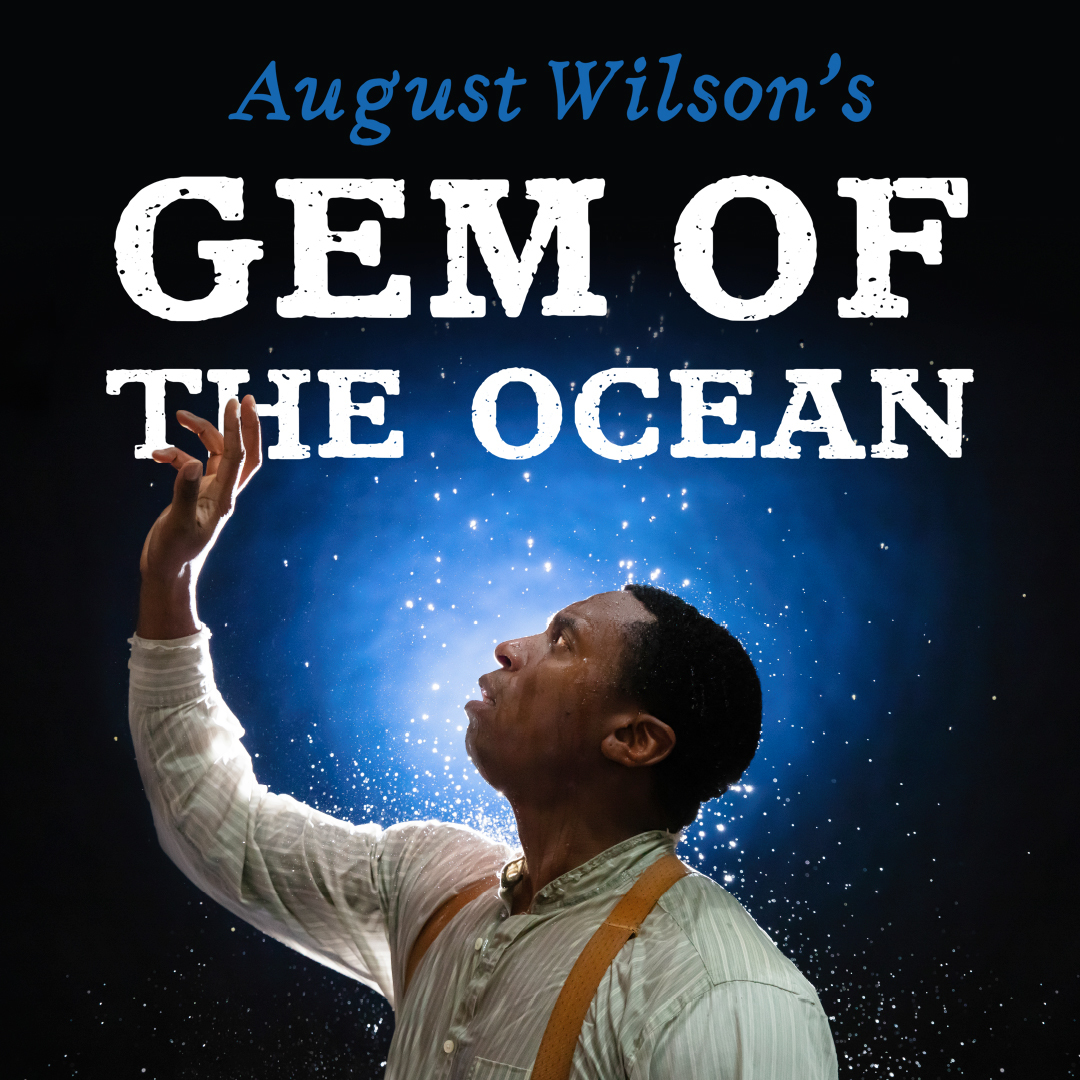Resource Guide
Gem of the Ocean Plot Summary
Spoiler alert! A brief overview of Gem of the Ocean.
Learn MoreFrom the Director: Chip Miller
Director Chip Miller on the significance of memory, history, and ancestral connection in August Wilson's Gem of the Ocean and the other plays of Wilson's Century Cycle.
Learn MoreBehind the Curtain: Spotlight on Aunt Ester
Over the course of approximately 26 years, Wilson wrote one play for each decade in the 20th century. At the center of this tapestry stands Aunt Ester, the character which Wilson himself deemed the most significant in his plays.
Learn MoreThe Hill District
The Hill District is a 1.4-square-mile section of Pittsburgh that has been predominantly African American since the 19th century. This small strip of Pittsburgh is where a majority of the Century Cycle Plays are located. To understand more, read to explore where these plays come from!
Learn MoreThe Century Cycle
Beginning in 1904 with Gem of the Ocean and ending in 1997 with Radio Golf, August Wilson's 10-play American Century Cycle charts the lived experience of African Americans throughout the 20th century. Learn more about each of these plays and their connection to one another.
Learn MoreGem of the Ocean Reading List
Calling all readers! Multnomah County Library put together a reading list inspired by our production of August Wilson's Gem of the Ocean.
Learn MoreCast & Creative Team
Meet the cast and creative team for August Wilson’s Gem of the Ocean.
Learn MoreStudent Matinee Curriculum
Portland Center Stage’s Student Matinee Program seeks to provide all young people with opportunities to experience and directly participate in the art of high-quality, professional theater in a context that supports their education. The following is designed to help students explore themes found in our production of August Wilson’s Gem of the Ocean. We encourage you to choose the most appropriate activities for your group and adapt as needed.
A special thanks to Hartford Stage for the curriculum inspiration!
DISCUSSION QUESTIONS
What kinds of communities are you a part of? (e.g. hobbies, family, religion, etc.)
What are the best and worst parts of these communities?
Why did you choose to be a part of these communities?
What's unique about the community that you live in or your neighborhood?
What does your neighborhood have a reputation for?
What do your neighbors know about you that no one else would know?
ACTIVITY I: Discovering Character
Materials: pencils/highlighters, printed monologues for each student from August Wilson's Gem of the Ocean.
Step 1: Choose a monologue to analyze together. Have students read through it carefully and highlight any words or phrases that are unfamiliar. Spend some time discussing and researching these new terms.
Step 2: Have students look at the monologue within the wider context of the scene. What does that character want and how are they trying to get it? A character is often employing an action or tactics to reach their objective (i.e. manipulating, flattering, bartering, etc.). Ask the class what they think the character’s objectives are and the tactics they are using to achieve that goal. There is no one completely right answer! This is where interpretation comes in.
Step 3: After identifying the character's objectives for that moment in time, discuss the play as a whole. What is the character’s objective for the whole play (the super objective)? Is it similar to their objective in your scene? How so?
Reflection Questions:
Were there any words or phrases that you had never seen or heard of before? If so, what were they?
Why might it be helpful to analyze a monologue and the wider play this way? Share what you learned from this exercise.
How do you connect with what the characters want and how they go about achieving it?
ACTIVITY II: Your Story
Step 1: Ask your class to think of a story they would like to tell about their community. It does not have to be entirely true, and their community can consist of a larger group or be as small as your class. (5 minutes)
Step 2: Ask students to put their story down in writing. Encourage them to free write, put down anything that comes to mind, and to write it in any form they prefer (ie. script, narrative, memoir). (5 minutes)
Step 3: Encourage students to share their stories out loud. (10 minutes)
Reflection Questions:
How was your story unique compared to your classmates? In what ways was it similar?
Why did you include what you did in your story? What makes something significant enough to be mentioned?
Was your story entirely true, a work of fiction, or both?
Thank you to our Education Program Sponsors!
Portland Center Stage is committed to identifying & interrupting instances of racism & all forms of oppression, through the principles of inclusion, diversity, equity, & accessibility (IDEA).















